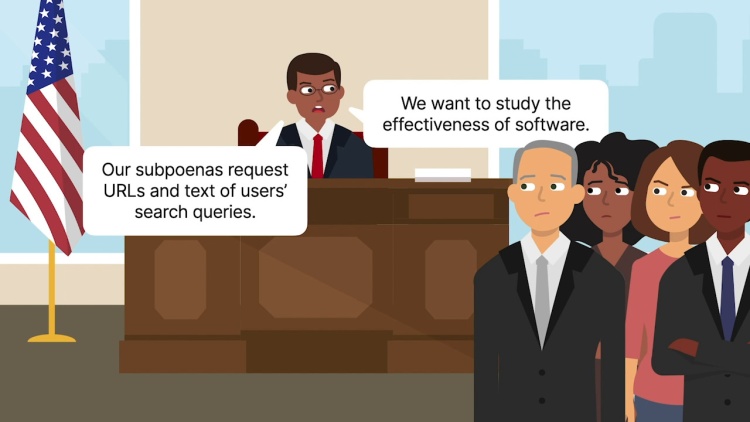Gonzales v. Google, Inc.
United States District Court for the Northern District of California
234 F.R.D. 674 (2006)
- Written by Abby Roughton, JD
Facts
The Child Online Protection Act (COPA), 47 U.S.C. § 231, forbids knowingly using the internet to communicate material that is harmful to minors for commercial purposes. The American Civil Liberties Union and other plaintiffs challenged COPA's constitutionality and were granted a preliminary injunction preventing enforcement of the statute. That matter ultimately reached the United States Supreme Court, which affirmed the grant of a preliminary injunction. However, the Court raised questions about whether there was filtering software available that could prevent minors from viewing harmful content, as that would be a less restrictive way of achieving COPA's goals. The Court remanded the matter for trial so the parties could update the record to explain the available technologies. In preparing its trial defense, the government hoped to test filtering software and subpoenaed Google, Inc. (Google) (defendant), America Online, Inc. (AOL), Yahoo! Inc. (Yahoo), and Microsoft, Inc. (Microsoft). The subpoena required production of URLs available to users and text of search queries entered by users. AOL, Yahoo, and Microsoft produced the data requested by the government. Google, the market-leading search engine, objected to the production. The government reduced its initial demand for data and sought a sample of 50,000 URLs and 5,000 user queries. Google still objected to the government's request. United States Attorney General Alberto Gonzales (plaintiff) filed an action against Google in federal district court to enforce compliance with the subpoena.
Rule of Law
Issue
Holding and Reasoning (Ware, J.)
What to do next…
Here's why 908,000 law students have relied on our case briefs:
- Written by law professors and practitioners, not other law students. 47,100 briefs, keyed to 997 casebooks. Top-notch customer support.
- The right amount of information, includes the facts, issues, rule of law, holding and reasoning, and any concurrences and dissents.
- Access in your classes, works on your mobile and tablet. Massive library of related video lessons and high quality multiple-choice questions.
- Easy to use, uniform format for every case brief. Written in plain English, not in legalese. Our briefs summarize and simplify; they don’t just repeat the court’s language.





